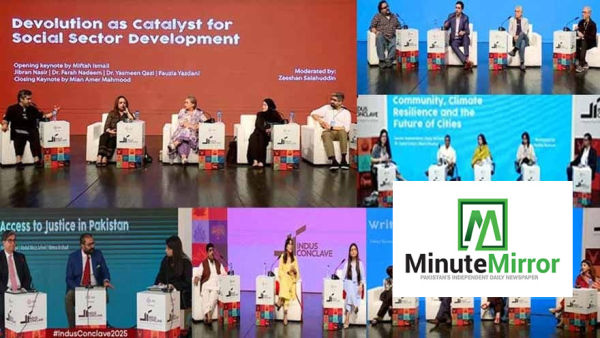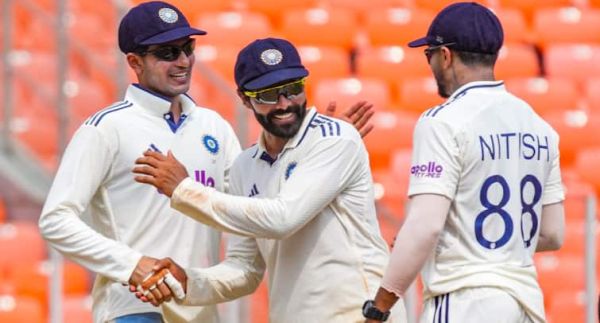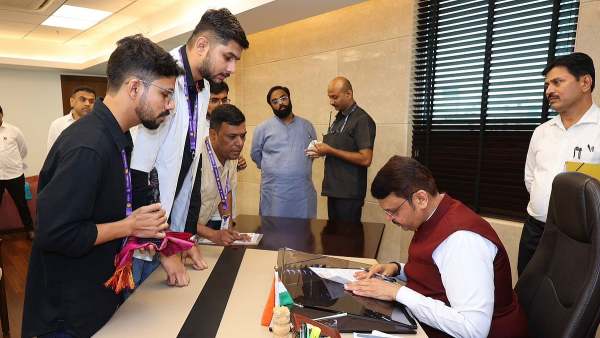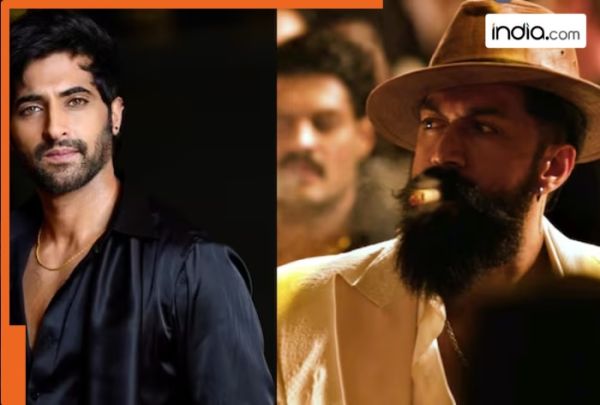
The Indus Conclave 2025 concluded at the Alhamra Arts Council after three days of lively discussion, cultural dialogue, and intellectual reflection. Organised by the Punjab Group, the event gathered scholars, writers, artists, and journalists from across Pakistan and beyond. Together, they explored how ideas, language, and art continue to shape modern society.
The final day opened with a session titled “Rereading Empire: Western Classics Through Postcolonial Eyes.” Speakers Maryam Wasif and Luke Soucy examined the legacy of colonial narratives and how Western classics continue to influence thought and literature today. They urged readers to revisit these texts through a postcolonial lens, questioning the power structures they uphold.
In another powerful session, “Language as Freedom,” prominent writer Mohammed Hanif joined Najam Shahbaz and others to discuss the role of language in shaping personal and social identity. They described language as more than communication a form of resistance and self-expression that defines intellectual freedom. The panel agreed that writers and journalists serve as the true guardians of social dialogue.
Political commentary and reflection took center stage in “Do Raaye: A Look Back at Pakistan.” Zarrar Khuhro, Fasih Zaka, Mubashir Zaidi, and Asad Rahim Khan examined Pakistan’s political journey and the evolution of media narratives. They emphasised that disagreement and dissent are essential for democracy to thrive.
The literary world was explored in “Recentering the East: Literary Futures from the Global South.” Speakers Bilal Tanveer and Hayden Kho discussed the growing recognition of voices from Asia, Africa, and Latin America. They highlighted how writers from the Global South are redefining storytelling by reclaiming cultural and historical perspectives long overshadowed by the West.
Technology and innovation also featured prominently. In “From Data Chaos to Healthcare Revolution,” experts Dr Maryam Mustafa, Dr Suleiman Shahid, Dr Athar, and Daniel Scharff discussed how artificial intelligence is transforming healthcare. They noted that Pakistan has the potential to become a regional hub for digital health solutions if innovation continues to be encouraged.
The conclave also celebrated new literary works with the launch of “A Knife of the Tide” and “Forty Days of Mourning.” Both authors reflected on themes of grief, resilience, and the human spirit, adding an emotional depth to the event’s cultural atmosphere.
The closing “Townhall” session provided a space for participants to share reflections and recommendations for future editions. Organisers announced plans to expand the next Indus Conclave, promising even broader engagement with global ideas and voices.
We welcome your contributions! Submit your blogs, opinion pieces, press releases, news story pitches, and news features to opinion@minutemirror.com.pk and minutemirrormail@gmail.com
-
IND vs WI: Ravindra Jadeja To Join Elite Club Of World's Top All-Rounders

-
AMD Signs Multi-Billion Dollar AI Chip Deal With OpenAI, Stock Soars Over 34%

-
Thane Doctors Thank Maharashtra CM Devendra Fadnavis & Deputy CMs For Resolving Pending Salary Issue

-
'My Head Hurts But...': Vijay Deverakonda Shares Update After His Car Meets With Accident In Telangana

-
Akshay Oberoi expresses his excitement about working with Yash in Toxic, ‘The whole world is…’
